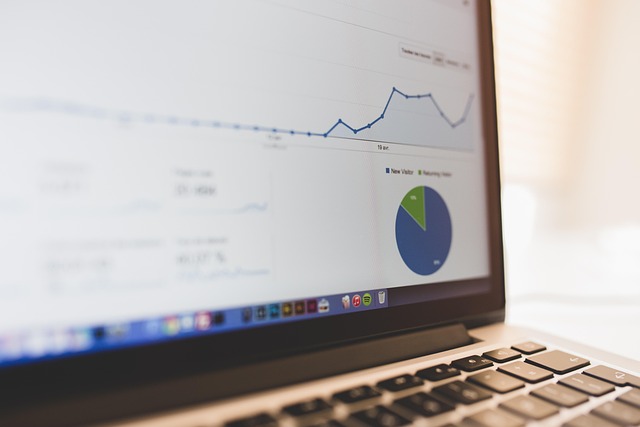Search Engine Optimization (SEO) is a crucial tool for digital marketing newcomers to boost online presence and attract organic traffic. Beginner SEO training focuses on foundational knowledge like keyword research, understanding user search behavior, and aligning content with search engine algorithms. Key strategies include natural keyword integration, technical optimization, mobile responsiveness, structured data markup, and link building from reputable sources. On-page SEO involves optimizing title tags, meta descriptions, and headers; off-page SEO enhances brand authority through backlinks. Measuring performance using tools like Google Analytics is vital for refining strategies. Continuous learning and adaptation to algorithm changes are essential for effective Beginner SEO Training.
Dive into the world of SEO basics and unlock your online visibility potential. This comprehensive guide is designed for those new to the art of search engine optimization, offering a clear path to understanding and implementing effective strategies. From unraveling the mysteries of keyword research to mastering on-page and off-page techniques, each section provides invaluable insights for beginners seeking to enhance their online presence. Equip yourself with this essential Beginner SEO Training and elevate your digital game.
Understanding Search Engine Optimization (SEO)

Search Engine Optimization, or SEO, is a crucial strategy for anyone looking to enhance their online visibility and attract organic traffic to their website. It’s the process of optimizing content and site structure to rank higher in search engine results pages (SERPs). For beginners in the digital marketing space, understanding SEO fundamentals is essential. Beginner SEO training often focuses on key concepts like keyword research, where learning to identify relevant terms that potential customers use to search for products or services is vital.
This involves studying user behavior and understanding how search engines crawl and index websites. By mastering these basics, individuals can create content that not only appeals to their target audience but also aligns with the algorithms of major search engines like Google. This ensures that their online efforts reach the right people at the right time, driving more effective results.
Why SEO is Crucial for Online Visibility

In today’s digital landscape, Search Engine Optimization (SEO) is no longer an optional strategy for businesses and content creators; it’s a fundamental tool to enhance online visibility. SEO plays a pivotal role in ensuring your website or business ranks higher on search engine results pages (SERPs), which is crucial for several reasons. For beginners embarking on their online journey, understanding the basics of SEO is essential. By optimizing content with relevant keywords and phrases, you make it easier for potential customers or readers to discover your website organically.
When a user searches for information related to your niche, effective SEO ensures that your website appears among the top results. This increased visibility leads to higher traffic, as users are more likely to click on the first few links displayed. As a result, beginner SEO training can empower individuals to create content and structure websites in a way that attracts search engines, ultimately driving organic growth and fostering a successful online presence.
Key Components of Effective SEO Strategies

In the realm of online visibility, Search Engine Optimization (SEO) stands as a cornerstone for digital success. For beginners in this field, understanding the key components of effective SEO strategies is essential for navigating the intricate landscape of web rankings. A solid Beginner SEO Training foundation begins with keyword research – identifying search terms that potential customers use to find products or services similar to yours. Integrating these keywords naturally into well-crafted content becomes the cornerstone of your optimization efforts.
Beyond keyword placement, technical SEO plays a pivotal role in ensuring search engines can accurately crawl and index your website. This involves optimizing site structure, improving page load speeds, ensuring mobile responsiveness, and implementing structured data markup to provide search engines with valuable context about your content. Link building also deserves significant attention, as high-quality backlinks from reputable sources signal to search engines that your website is a trusted authority in your niche.
Keyword Research: The Cornerstone of SEO

Keyword research is a fundamental step in any Beginner SEO Training. It involves understanding and identifying the terms and phrases that potential customers use to search for products, services, or information related to your business. By utilizing relevant keywords strategically throughout your website’s content—including titles, meta descriptions, headers, and body text—you can improve visibility on search engines like Google. This process helps your online platform rank higher in search results, making it easier for target audiences to discover what you offer.
Effective keyword research also involves analyzing competition. Tools such as Google Keyword Planner or SEMrush can provide insights into the popularity of specific keywords and how many websites are already targeting them. Identifying long-tail keywords—more specific phrases that have less competition but still reflect genuine search intent—can significantly enhance your SEO efforts. This approach ensures that when users search for highly relevant terms, your website has a better chance of being found, driving more organic traffic and ultimately boosting online success.
On-Page SEO Optimization Techniques

On-Page SEO optimization is a crucial aspect for any beginner SEO training, as it involves enhancing specific web page elements to improve search engine visibility and rankings. This process ensures that your website content is optimized for both users and search engines, making it an essential strategy for driving organic traffic. Key techniques include optimizing title tags and meta descriptions to accurately reflect the page’s content while incorporating relevant keywords naturally.
Additionally, creating high-quality, engaging content that satisfies user intent is vital. This involves conducting thorough keyword research to identify terms your target audience uses when searching for similar products or services. Once these keywords are integrated into your content, it becomes more likely that search engines will recognize and rank your pages higher in search results.
Off-Page SEO and Link Building Strategies

Off-page SEO involves strategies that take place outside your website, focusing on building authority and trust in your brand from other online sources. As a beginner in SEO training, understanding link building is key to this process. One effective method is to secure backlinks from reputable and relevant websites. This can be achieved through guest blogging, where you contribute valuable content to popular blogs in your industry, earning a backlink in return. Another strategy is to engage in social media marketing, sharing your content widely and encouraging users to link back to your site organically.
Building high-quality backlinks requires consistent effort and creativity. You can also reach out to influencers or industry leaders and ask for their endorsement or collaboration, which may result in valuable backlinks. Additionally, local businesses can benefit from engaging with community platforms and directories, ensuring their online presence is visible to a wider audience. These Off-page SEO techniques are essential tools in any beginner SEO training curriculum, as they contribute significantly to improving your website’s search engine rankings over time.
Measuring SEO Performance and Analyzing Data

Measuring SEO performance is a crucial step in any Beginner SEO Training program. It allows you to track your website’s visibility, organic traffic growth, and conversion rates over time. By utilizing tools like Google Analytics and Search Console, you can gain valuable insights into what strategies are working and where there’s room for improvement. Regularly analyzing data enables you to refine your SEO approach, targeting relevant keywords and creating high-quality content that resonates with your audience.
Analyzing data also helps identify technical SEO issues such as broken links, crawl errors, or slow loading times. Addressing these problems promptly ensures a seamless user experience and signals to search engines that your website is reliable and worthy of higher rankings. It’s an ongoing process that requires consistent monitoring and adaptation, keeping you ahead of the curve in the dynamic world of digital marketing.
Continuous Learning and Staying Updated in SEO

The world of search engine optimization (SEO) is constantly evolving, with algorithms changing and new trends emerging regularly. Therefore, continuous learning and staying updated are essential components for any individual serious about excelling in Beginner SEO Training. The digital landscape is dynamic, and what works today might not be effective tomorrow. SEO practitioners need to stay abreast of the latest Google updates, industry news, and best practices to remain competitive. This includes understanding changes in ranking factors, algorithm adjustments, and the ever-changing preferences of search engine users.
Engaging in ongoing education allows you to adapt your strategies accordingly and maintain a high level of expertise. There are numerous resources available, such as online courses, blogs, forums, and webinars, that provide valuable insights and keep you informed about SEO advancements. By staying current, you can ensure your techniques are effective, efficient, and aligned with search engine guidelines, ultimately driving better search rankings and results for clients or projects.
